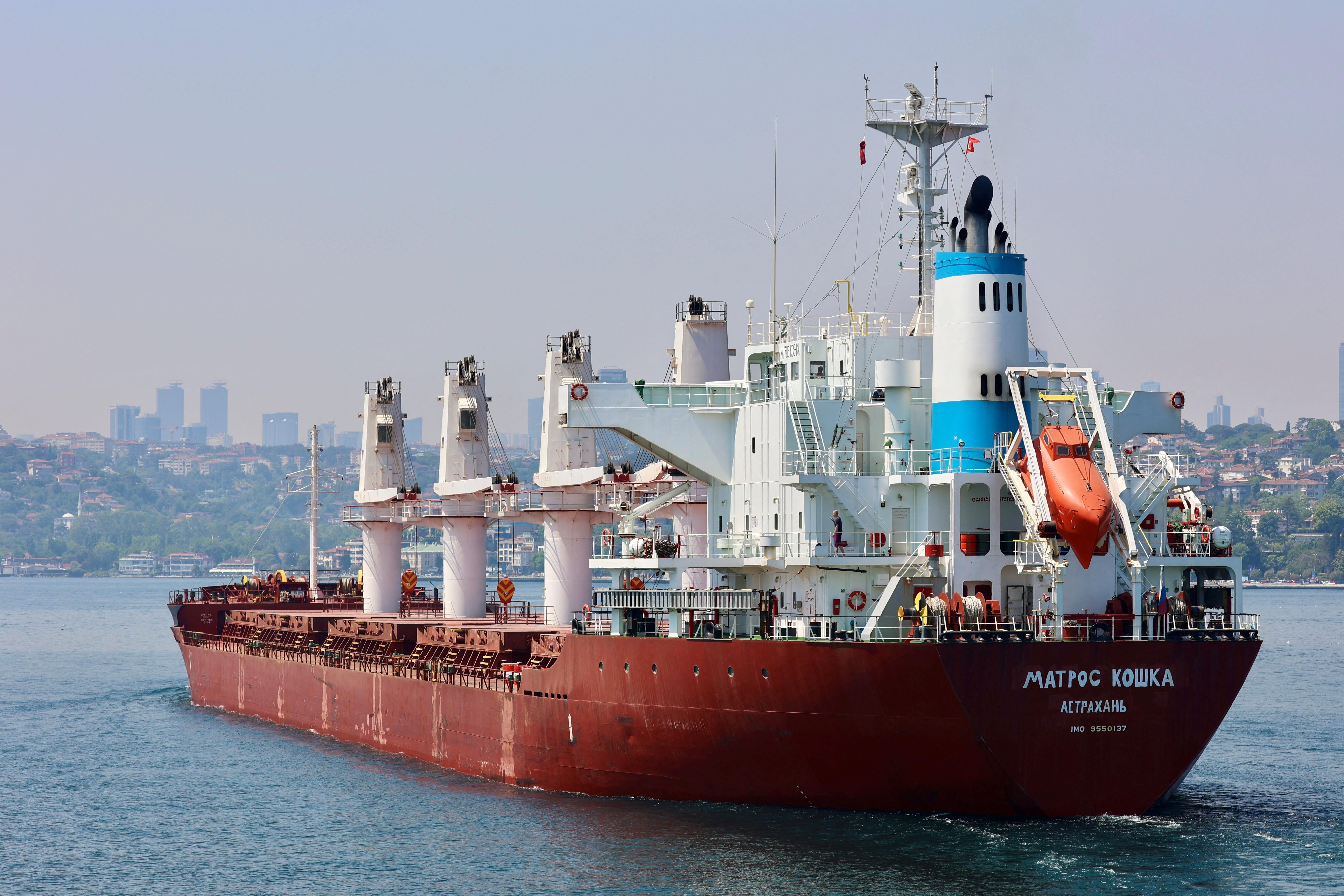What We're Watching: Black Sea wheat pirates, Kazakh referendum, Korean missile tit-for-tat
Donbas battle rages as stolen wheat hits high seas
Ukrainian and Russian forces are locked in a fierce battle for control of the strategic eastern city of Sievierodonetsk. Taking it would help Russian forces occupy a broader swath of the Donbas. Ukrainian President Volodymyr Zelensky, visiting frontline troops in nearby Zaporizhzhia, said his men had “a chance” to hold the city despite being outnumbered. The question remains — at what point should Ukraine consider negotiating? Meanwhile, US officials have warned as many as 14 countries that Russian grain ships may arrive with cargos pilfered illegally from Ukraine. Still, amid a growing global food crisis that’s been made worse by the war, are governments really prepared to turn away huge shipments of wheat?
Is this a new Kazakhstan, or just a new old one?
Voters in the sprawling, oil-rich former Soviet republic approved constitutional changes that would decentralize the political system and strip former strongman Nursultan Nazarbayev of his emeritus privileges as “leader of the nation.” The move is seen as a bid by current President Kassym-Jomart Tokayev to move out of the shadow of his predecessor, who ruled the Central Asian nation from the Soviet collapse until stepping down in 2019. This isn’t the first swipe Tokayev has taken at Nazarbayev. Back in January, amid mass protests that began over fuel prices, Tokayev removed him from a key security post, while also calling in troops from a Russia-led regional security alliance to restore order. Those forces left soon after, and in the wake of that unrest, Tokayev proposed a range of constitutional reforms meant to tackle nepotism and move away from what he has called a “super-presidential” system. Tokayev has also sought to distance himself from Russia’s position on Ukraine, in a move experts say is also about distinguishing himself from Nazarbayev. After the YES vote, it remains to be seen whether the changes are really about moving Kazakhstan away from strongman rule, or merely cutting a path for one strongman to replace another.
US & South Korea show off their toys to Kim Jong Un
We're used to North Korea’s Kim Jong Un firing off a missile or two when he wants attention from Washington or Seoul (even on Puppet Regime!), as he did, yet again, on Sunday. The Americans and the South Koreans rarely respond with their own shows of force, but that is precisely what they did on Monday by launching seven projectiles from South Korea and one from the US — the second such retaliatory launch in two weeks. What's changed? First, South Korea has a new leader, President Yoon Suk-yeol, who won't play nice with the northern neighbor like his dovish predecessor, Moon Jae-in. Second, the US was not amused that North Korea decided to test a suspected ICBM just hours after President Joe Biden departed South Korea during his recent Asian tour. More broadly, now that he has the more pro-US Yoon in Seoul, Biden likely feels more emboldened to push back every time Kim goes ballistic. But what if Pyongyang's next step is to test a nuke for the first time since 2017, perhaps to distract attention from North Korea’s worsening COVID crisis? Don't expect tensions between the two Koreas to subside anytime soon.This comes to you from the Signal newsletter team of GZERO Media. Subscribe for your free daily Signal today.
